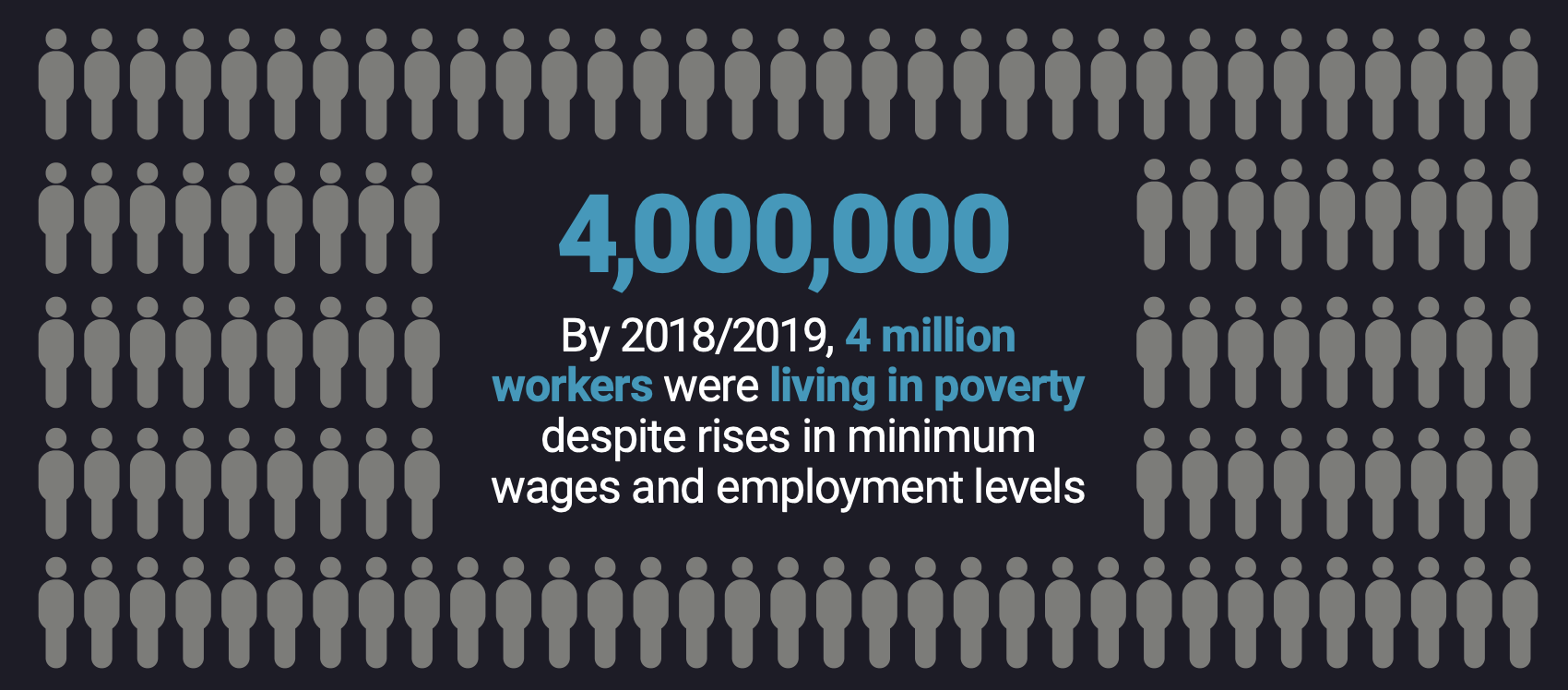Jack Newman and Steph Coulter argue that the levelling up agenda presents Prime Minister Rishi Sunak with a number of difficult challenges which he’d rather avoid but seems unable to escape. Confronting key questions around how England is governed will be crucial for its economic and political future, as a forthcoming report sets out.
The Sunak government finds itself in difficult positions on numerous fronts, with the economy, industrial relations and failing public services no doubt occupying most of the prime minister’s attention. It is therefore unsurprising that the “levelling up agenda” has not been a prominent feature of Sunak’s premiership so far – in recent decades, political leaders have been able to safely assume that questions of regional inequality and English devolution are a long way down the list of public priorities. However, things have changed. Levelling up, the promise to spread power and wealth across the country, was the cornerstone of the Conservative Party’s post-Brexit vision in the 2019 General Election, and it will no doubt be a focal point for many voters at the next election, especially those in “red wall” marginal seats.
There are clearly reasons why Sunak wants to avoid the levelling up agenda, not least because it is strongly associated with Boris Johnson, who adopted the slogan with great success in his campaign to garner popularity across England’s post-industrial towns and cities. However, part of the Johnson legacy is that the levelling up slogan is embedded in the machinery of government: the name of a department, the title of a cabinet minister, the role of a minister of state, and a set of cross-departmental missions, not to mention a sizable bill working its way through parliament. The train is very much in motion.
Part of the Johnson legacy is that the levelling up slogan is embedded in the machinery of government.
That Michael Gove, Johnson’s levelling up wing-man, remains a vocal and powerful Secretary of State for this project, is another reason why levelling up appears to be “locked-in”. Gove was also the architect of the Levelling Up White Paper, which he restated with some force in his recent speech to the Convention of the North. The implication of this seems to be that Sunak has given Gove the freedom to reinforce these mission statements but not the support to allow him to offer any new policies, or indeed funding, to deliver them. This is particularly important given widespread criticism of the levelling up agenda for its lack of clear delivery mechanisms.
Failure to deliver
Therefore, aside from the difficulties of political communication, the levelling up agenda creates a more substantive dilemma for the government. The nearly four years of levelling up rhetoric and the Levelling Up White Paper itself have promised big fundamental changes in the life experience of citizens in less prosperous places, covering a wide range of policy areas, including health, skills, transport, employment, culture and local governance. Delivering on such an expansive agenda would seem to demand significant public and private investment, and yet there are few immediate prospects for raising the former or leveraging the latter.
The latest round of Levelling Up Funding represents a sprinkling of investments across a thematically and geographically disparate array of fixed-term projects, rather than a strategic intervention capable of shifting the tectonic plates that lie beneath the country’s stark geographic inequalities. This widely accepted deficiency in the policy agenda is now becoming a political headache for Sunak, with the Conservatives’ own leading metro-mayor dismissing the Levelling Up Fund as merely “another example as to why Whitehall’s bidding and begging bowl culture is broken”.
While the government grapples with this policy challenge, the Labour Party are doubling down, with the release of a major statement of intent to rewire the UK’s governance structures in order to deliver a more equitable geography and stronger productivity growth. But, despite the lofty discourse of Labour’s proposed reforms, there are abundant similarities to the existing Levelling Up White Paper, and a significant lack of detail in relation to institutional design and much needed investment. The difficulty for Sunak’s government is that the questions unanswered by Labour remain unanswered in the levelling up agenda itself. The most significant of these is how to make English devolution work.
The question of England’s governance can no longer be ignored
This emerging consensus on the need for English devolution reflects a tacit recognition of the failings of the UK’s historically centralised system, not least since the massive decline in its legitimacy caused by the management of Brexit and the unprecedented political turmoil of recent years. There is also now a growing acceptance of the connection between England’s economic weakness and its over-centralisation, a theme being explored in a new strand of research at The Productivity Institute. The way that England is governed is no longer a purely political question; it is a question about the county’s economic future and its embattled public services.
There is now a growing acceptance of the connection between England’s economic weakness and its over-centralisation.
A major forthcoming report produced by the Bennett Institute and Institute for Government will offer a comprehensive diagnosis of the dysfunctions of England’s government. In addition to re-emphasising the widely reported over-centralisation, it will identify a historical failure to consider English government as a discrete political question, and a worrying democratic deficit linked to fragmented, weak, and unstable local governance arrangements.
Democracy at stake
The over-centralisation of England is not an easy problem to solve. It is not just about persuading central government to give up power. It is about rethinking – and institutionally rewiring – the central-local relationship, so that the UK government (a) faces up to the political importance of how England is governed, (b) accepts the need for England’s devolved and local leaders to have a say at the centre, and (c) engages in a genuinely democratic process to settle England’s political geography.
The problem is that creating these new governance structures will take time and legitimacy, two commodities that the current government are fast running out of. And yet, given the overlaps between the levelling up policies of the two political parties, and the increasingly recognised problem with rip-it-up-and-start-again approaches in this policy area, Sunak’s levelling up legacy could be to build the foundations of a devolution agenda in England.
The obvious solution is to depoliticise and buy time by establishing a landmark independent review on the future England’s governance. As well as suiting Sunak’s immediate political problems, such a move could help deliver significant reform while also securing longer-term stability. Perhaps most importantly of all, an independent review could give a voice to a citizenry who have been locked out of the English devolution debate for decades.
This post draws on the conclusions set out in a forthcoming report on Devolving English Government from the Bennett Institute for Public Policy and the Institute for Government, as part of the Review of the UK Constitution Project.
For more analysis of levelling up policy, browse all related blog posts here.
All articles posted on this blog give the views of the author(s), and not the position of LSE British Politics and Policy, nor of the London School of Economics and Political Science.
Image credit: Photo by Number 10, Attribution-NonCommercial-NoDerivs 2.0 Generic (CC BY-NC-ND 2.0)






